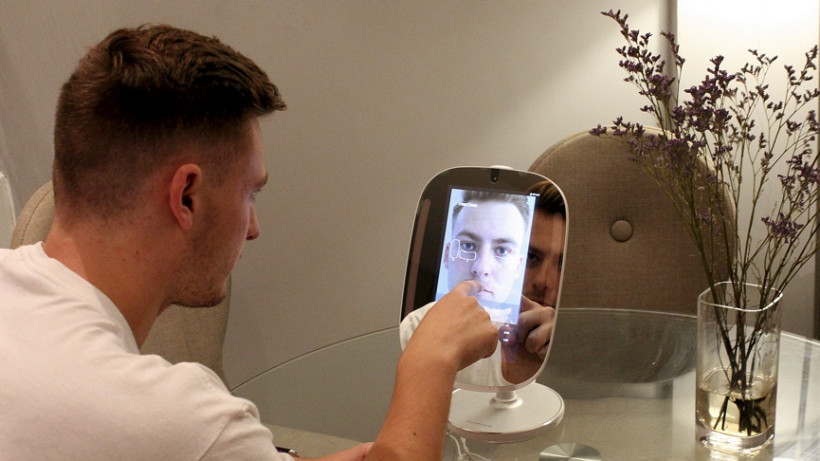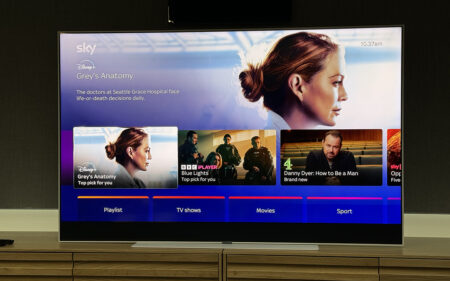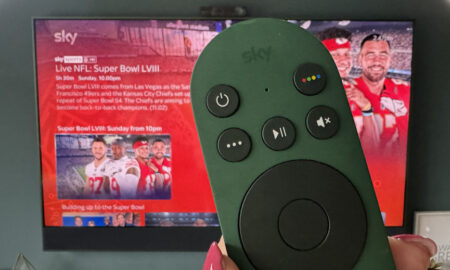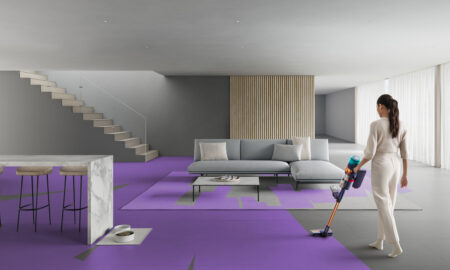Mirror, mirror, on the wall - are you really smart at all?
On Robert D. Hare’s Psychopathy Checklist, there are 20 criteria for assessing a potential psychopath. If it was up to me, there would be another – for people who can handle looking at their own face in the morning.
Within the consistent morning struggle to remain hygienic and on time for work without forgetting anything, I generally like to avoid seeing my own half-hungover, six-hours-sleep-at-best face in the mirror. So, imagine the issues I’ve been having over the past couple of weeks, where I’ve been taking 5-10 minutes out of my rushed morning routine and subjecting a smart mirror to numerous close-ups of it.
Read this: Is our reflection the only thing that can distract us from the internet?
Now, when I first heard about the concept of a smart mirror from a friend, I didn’t immediately dismiss it — I was even a little intrigued. “Seems like an idea I probably should have thought of,” I remember saying to myself. But the more I’ve delved into the overarching concept through the HiMirror Mini, the more I’ve discovered problems, and not just with my time-ravaged mug.
Let me first explain what the HiMirror Mini actually is. This is a smart mirror that takes a picture of your face, analyses your skin, tracks how it’s altering over time and then recommends the best products for you. Or at least that’s the sell.
It also tracks how long you’ve been using any other products, to give you a better idea of whether that $80 fountain of youth serum is really helping your skin like it claims to, while users can even pull in data from the company’s smart scale.
At first glance, the idea appears fairly harmless, right? HiMirror’s CEO, Simon Shen, states on the company’s website that he wanted to create something for his wife that would help her get ready — again, seems fine.
Essential reading: How much does it cost to power your smart gadgets?
But even after just a few days of use, the cracks begin to appear. Personally, I’ve rarely, if ever, looked at myself and wanted to understand if my faint, 23-year-old frown-wrinkles are getting worse (in case you’re wondering, wrinkles always do get worse no matter what you put on your face — a fundamental problem with tracking them), but when you have a piece of tech telling you they are, it inevitably starts to play on your mind.
“Are they really getting worse?” I ask myself. “Should I be doing something about that?” I question for a moment. “Why is this mirror winking at me every time I boot it up?” I sit, perplexed.
Now, for the record, I actually wasn’t doing anything about this from a product perspective — I moisturise from time to time (big whoop, deal with it), but that’s about it. But being told in percentage form how the bags under your eyes are doing, or how the pores on your nose are looking — I can see how that could potentially be damaging for someone who cares more about their face than I do.
My wrinkles are, frankly, about as tame as wrinkles get. I’m given a score of 2% on my forehead and 3% for my smile lines. With 0% representing peak skin condition, this is a figure that’s both easy to begin obsessing over – essentially gamifying your face – and also something you’re not really given a deeper context to. Sure, it’s used to help you track products over time, but what if one of my wrinkles sat at 70%, why is that considered worse? Who is HiMirror to judge my face? That job is reserved for people I pass in the street and my flatmates.
So, with my minor wrinkles, I’m starting from the roughly the top of HiMirror’s spurious scale. You can imagine my surprise, then, to see the top products recommended to me are anti-ageing serums. Again, I’m a 23-year-old.
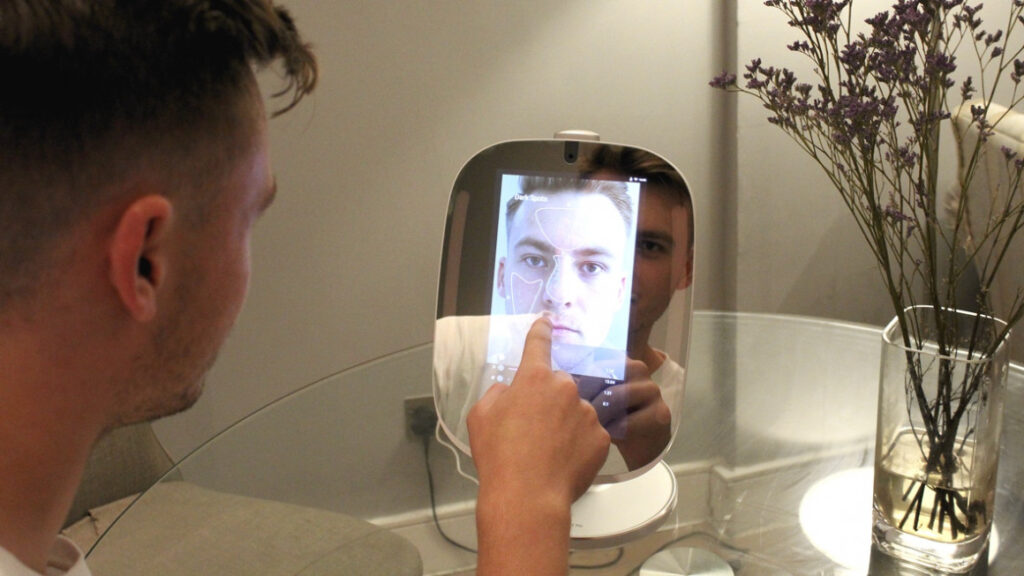
And being an adult who doesn’t invest too much time in my face, or trust in HiMirror’s algorithms, I can pretty comfortably decide whether I need an anti-ageing serum (if you’re wondering, I decided against it on this occasion). But if someone is investing their money and trust in this mirror, the chances are high that they do care about their appearance — and, more troublingly, many of these users may not be adults that can put the scores into a rational context.
The $119 Mini is the latest device in a HiMirror series that includes three other equivalents, but this is the cheapest and, therefore, arguably the most accessible. And though the company states that children under the age of 13 aren’t permitted to create their own HiMirror account, not only do you not need an account to access the basic features of the device, 13 is still a wildly young age to begin tracking the deepest crevasses of your face. To repeat, in my world, you get a red card for wanting to look at your face before 12pm anyway.
Who is HiMirror to judge my face? That job is reserved for people I walk past in the street and my flatmates.
And this is only compounded by a direct link to Instagram from the mirror itself, where users are able to snap a photo and directly post to their account. Granted, HiMirror doesn’t directly target its mirrors at teens through its press material, but it’s not unreasonable to imagine this feature was dreamt up to appeal to HiMirror’s younger audience.
Of course, HiMirror itself adds a pop-up within the device that states its “skin analysis reports are for personal reference only” and that “the information should not be used as a medical diagnosis”, but this assumes that every user is able to comfortably take the tracking as just a personal reference.
It’s for this reason why we’ve routinely seen charities and groups like the Body Dysmorphic Disorder Foundation come out against the use of the mirror and others like it – because they flirt with a potentially much more dangerous area of technology than even what we’ve seen from the Amazon Echo Look (the smart device which rates your outfits) and the augmented reality demos L’Oreal is soon set to bring to Instagram.
My beef here isn’t with the device’s functionality, naturally. Apart from not really being able to see the screen – you know, because it’s a mirror you touch – I can see how a beauty blogger, for example, may find some value in this device. But with its subjective tracking, shaky recommendations and propensity to appeal to a young crowd, it’s fair to question whether this smart mirror – and others offering features like it – are really smart at all.
Now, excuse me, I’m off to exfoliate my chin.


